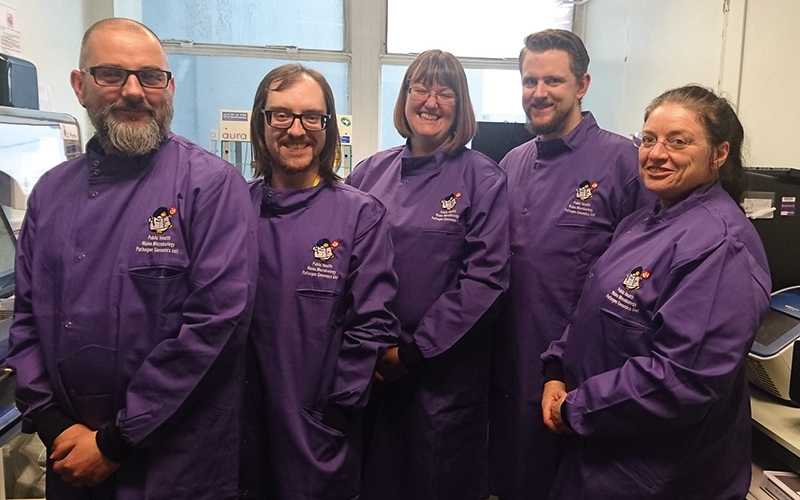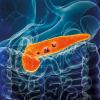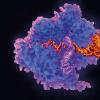Joanne Watkins, Senior Biomedical Scientist and Deputy Head of Pathogen Genomics Unit, gives a guided tour of her laboratory in Cardiff.

The Public Health Wales Pathogen Genomics Unit (PenGU) was launched 14 February 2018 and has grown from strength to strength. We are a small, dedicated team of experienced scientists based at University Hospital of Wales, Cardiff. Our collective goal is to continue to harness health innovation to improve patient outcomes, underpinning the delivery of precision healthcare and enabling the delivery of precision public health in Wales.
We are a world-leading genomics service for Wales, providing sequencing, genotyping and bioinformatics services to support diagnostics, surveillance and research. Alongside diagnostic services for HIV resistance, mycobacteria characterisation and Mycobacterium tuberculosis, characterisation of Clostridioides difficile and antibiotic-resistant bacteria, we carry out sequencing for the surveillance of influenza and enterovirus.
Since the start of the SARS-CoV-2 pandemic, we have built and delivered an All-Wales sequencing servicing for SARS-CoV-2, using the sequencing data generated to monitor viral spread through Wales, characterise changes in the virus (variants) and provide data and analysis to support the pandemic response in Wales, the UK and globally.
Since the start of the pandemic we have sequenced over 200,000 SARS-CoV-2 samples, rapidly uploading the sequence data onto public sequencing databases within days of their generation, supporting the wider global health research response to better understand this pathogen.
The team have been amazing. Not only have they managed to deliver the ongoing diagnostic services alongside supporting the SARS-CoV-2 pandemic, they have been learning and validating new techniques and equipment; they have also continued to work to such high standards in all they do that PenGU has retained the existing accreditation for HIV resistance, mycobacteria characterisation and M. tuberculosis after our UKAS extensions-to-scope visits and also gained new accreditation for the characterisation of C. difficile and now preparing for the accreditation service for the SARS-CoV-2 surveillance service.
In the near future, with the support of the Welsh Government and Public Health Wales, we will be moving to a new site with our colleagues in the Genomics Partnership of Wales to a Genomics Centre of Excellence – what will be the next instalment?
Joanne Watkins is a Senior Biomedical Scientist and Deputy Head of the Pathogen Genomics Unit at Public Health Wales Microbiology Cardiff.




